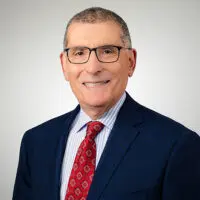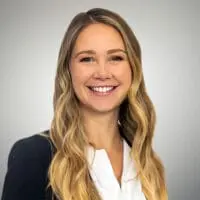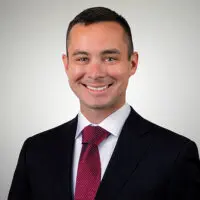Publication
Colorado’s Magic Mushroom Industry Has Officially Arrived
By Bill Ojile, Carrie Schaffer, Jordyn McDowell, and Mark Stern
Natural medicine (i.e., magic mushrooms) in Colorado is reaching new highs. On June 6, 2025, the first state-regulated psilocybin session, a five-hour high-dose facilitation bookended by required preparation and counseling,1 was conducted in Denver, Colorado.2 This inaugural session signals a watershed moment for Colorado’s natural medicine industry at a time in which psychedelic mushroom constituents psilocybin and psilocyn remain classified as Schedule I controlled substances under federal law (meaning that, under federal law, psilocybin and psilocyn remain criminalized notwithstanding Colorado’s state-level regime).3
This alert provides a summary of recent developments in Colorado law governing the production and sale of psychedelic mushroom products with particular focus on legal risks for natural medicine businesses.
How Colorado Legalized Psychedelics at the State Level
In 2022, Colorado voters approved Proposition 122 to make Colorado the second state, behind Oregon, to legalize psychedelic substances.4 The measure passed with 53.64% of the vote, signaling moderation yet decisive support. Proposition 122 required statutory amendments to permit the supervised use of psychedelic mushrooms by individuals aged 21 and over at licensed facilities.5 The resulting statutes, the Natural Medicine Health Act of 20226 and the Colorado Natural Medicine Code,7 called for Colorado’s Department of Regulatory Agencies (DORA) and Department of Revenue, Natural Medicine Division (the “Natural Medicine Division”) to promulgate market-structuring regulations governing the legal use of natural medicine, including psychedelic mushrooms amongst other substances.
DORA oversees facilitator credentialling and practice standards. The Natural Medicine Division, a subdivision of the Department of Revenue, regulates the commercial supply chain.8
How the Magic Mushroom Market Works
Psilocybin mushrooms (often called magic mushrooms) are not yet available for everyday purchase and consumption. At the end of the psychedelic mushroom market cycle, consumers receive therapeutic preparation counseling, administration of psychedelic mushroom products, and post-administration integration counseling from licensed facilitators at licensed healing centers.9 Once facilitators have obtained 50 hours of experience in administration sessions, they may also administer psychedelic mushroom products at other authorized locations, such as a homebound individual’s residence.10 To support individuals seeking to become licensed facilitators, at least one Colorado University has recently announced a 16-week long training course that has been approved by DORA.11 But before facilitators can interact with consumers, someone needs to grow the mushrooms.
Colorado’s framework is intentionally designed to be a closed-loop; every legal transfer must occur between licensees. Psychedelic mushrooms sprout into the supply chain at cultivation facilities licensed by the Natural Medicine Division,12 like a licensed cultivation facility in downtown Denver, Colorado that has already begun operations.13 The Natural Medicine Division also licenses testing facilities (which verify potency, screen for adulterants, and confirm safety), product manufacturers (where consumable products are infused with psilocybin), healing centers (where psychedelic mushroom products are administered), owners of entities operating these natural medicine businesses, and employees of such business.14 Once grown, mushrooms are transported by licensed employees – psychedelic mushroom products may not be handled or transported by unlicensed individuals – to a testing facility before being sold or distributed to a product manufacturer or healing center.15 For renewal, licensees must provide the Natural Medicine Division with, among other things, any management services agreements, contracts affecting natural medicine, intellectual property, and debt instruments.16
As of October 17, 2025, the Natural Medicine Division has approved licenses for 22 healing centers, seven cultivation facilities, four product manufacturers, one testing facility, 100 owners, and 87 handlers, with additional applications pending.17 Licenses are valid for one year and must be renewed annually.18
Once psychedelic mushroom products arrive at a healing center, consumers are expected to pay approximately $3,500 to receive administration and counseling sessions in addition to the cost of the products.19 These figures reflect market infancy and limited supply; industry participants anticipate downward pressure on price as additional operators come online.20 In the meantime, nonprofit organizations, Althea and Tricycle Day, have recently created The Forward Fund – a weighted lottery to assist individuals seeking psychedelic treatment in Colorado and Oregon.21 At least some Coloradans have expressed a willingness to pay up for healing sessions; one healing center in Fort Collins, Colorado, which charges $3,072 for an entry-level psilocybin program, has a client waitlist that has included up to 200 individuals.22
Legal Pitfalls for Industry Participants
There are several circumstances that can cause a natural medicine industry participant to trip. While the contours of the production, sale, and administration of psychedelic mushroom products are still developing, the following non-exhaustive list of pitfalls should be considered by anyone operating, or considering an application for, a natural medicine business license:
- Psilocybin remains a Schedule I substance on the federal level and, as such, there continues to be a clash between state and federal law on the subject;
- Federally chartered banks may be unwilling or unable to provide banking services to a natural medicine business, which would limit access to banking services to state chartered institutions;
- Colorado law limits the number of natural medicine businesses an individual may invest in;
- Applicants for a license issued by the Natural Medicine Division must submit an environmental, social, and governance plan – once a license has been issued, licensees are expected to publicly report their progress on such plan to consumers;
- Owners and investors in natural medicine businesses must demonstrate that they do not have a criminal history and are compliant with child support requirements;
- Changes in ownership must be preapproved by the Natural Medicine Division (including constructive changes in ownership such as the control conveyed by a management services agreement);
- Changes in a natural medicine business’ location must be preapproved by the Natural Medicine Division;
- The amounts of psilocybin stored and transported are capped by regulation;
- The advertisement of psychedelic products and services is regulated – businesses must ensure that the number of youths exposed to advertisements does not exceed an amount established by the Natural Medicine Division (mirroring cannabis advertising standards in Colorado); and
- Depending on the type of violation of the Natural Medicine Division’s regulations, individual violations are subject to fines up to $10,000 or $25,000.23
Additionally, anyone operating in Colorado’s natural medicine industry will need to navigate a patchwork of interrelated state and local laws. State law preempts certain operational areas and restricts municipalities from prohibiting (i) natural medicine businesses from operating, (ii) the licensed transport of natural medicine products, and (iii) adopting “unreasonable” ordinances or regulations governing natural medicine businesses.24 However, municipalities retain broad zoning, time-place-manner, and public-health authority. For example, the city and county of Denver has imposed a local licensing regime in which certain healing centers must apply for and obtain a municipal license.25 The Center Origin, the organization that conducted the first state-regulated psilocybin session discussed above, received the first license on July 23, 2025.26 As drafted, municipal law in Denver contemplates permitting locally licensed healing facilities to employ facilitators that are not licensed by DORA.27 Given the potential for conflicting state and local law, operators should plan carefully to mitigate regulatory risk.
Finally, traditional forms of liability will likely arise in new contexts as Colorado’s natural medicine industry matures. For example, plaintiffs may bring strict products liability and failure to warn actions for adverse reactions to psychedelic mushroom products. Additionally, new natural medicine businesses may attract nuisance claims from neighbors who oppose the legalization of psychedelic substances. For these reasons, as well as the inherent complexities of operating in a field that is illegal under federal law, natural medicine industry participants should regularly and thoroughly conduct risk analyses.
Future Developments in the Natural Medicine Industry
Once the leading pioneer in cannabis legalization, Colorado seems poised to embrace legalized psychedelic consumption. On June 18, 2025, Governor Jared Polis granted a categorical pardon for all Colorado state convictions solely involving simple possession of psilocybin or psilocin in which defendants were at least 21 years old at the time of the offense.28 While sweeping in nature, the clemency ultimately affected only four individuals – perhaps an inherent sign of Colorado’s willingness to permit a magic mushroom market to develop.29 Colorado may also have federal support in developing such a market; while speaking with Governor Polis, the U.S. Health and Human Services Secretary stated that he intends to be “outspoken in favor of advancing psychedelic therapies” from a federal perspective.30
Colorado’s magic mushroom market has already developed in at least one way that legislators and regulators may not have initially anticipated – the legalization of psychedelic retreats. Odyssey, a public benefit corporation that provides immersive and all-inclusive retreats in Oregon designed around psilocybin,31 recently conducted the first state-authorized psychedelic retreat in Colorado in June 2025.32 While this retreat was a pilot,33 Odyssey began a sold out retreat in Golden, Colorado on October 23, 2025 with admission beginning at $3,950; Odyssey has listed an additional Golden retreat taking place in December 2025 with admission beginning at $4,250.34
Colorado’s natural medicine industry may not always be limited to magic mushrooms. Pursuant to Proposition 122, the Colorado Natural Medicine Code has already paved the way for the legalization of three other natural medicine substances in as early as 2026: dimethyltryptamine (commonly known as DMT), ibogaine, and mescaline. Each of these substances is presently listed on Schedule I of the Controlled Substances Act, and the federal-state conflict that exists for psilocybin will extend to any newly authorized compounds absent of congressional action. Already, on September 18, 2025, Colorado’s Natural Medicine Advisory Board voted to recommend including ibogaine in Colorado’s legal natural medicine framework.35 Because of that recommendation, DORA and the Natural Medicine Division may consider ibogaine’s legalization.36 The consideration of ibogaine, extracted from the iboga shrug native to central Africa and proposed to be imported from Gabon where ibogaine is used ceremoniously, will almost certainly be complicated by export and use restrictions established by international and Gabonese law, hallucinogenic effects lasting up to 48 hours, and cardiac risks associated with ibogaine use.37
The regulations that will be required for such expanded legalization of natural medicine, and the lessons that will soon be learned from continued administration of psychedelic mushroom products, will almost certainly result in a rapidly evolving legal environment for Colorado’s natural medicine industry.
Footnotes
-
The Center Origin Conducts Colorado’s First Regulated High-Dose Psilocybin Session, PR Newswire (June 17, 2025), https://www.prnewswire.com/news-releases/the-center-origin-conducts-colorados-first-regulated-high-dose-psilocybin-session-302482961.html (last visited October 23, 2025). The Center Origin’s facility, documented in an interview, can be viewed here.
-
Id.
-
A list of controlled substances under the Controlled Substance Act, made available by the United States Drug Enforcement Administration and updated as of December 31, 2024, is available here.
-
Jennifer Brown, Colorado becomes second state to legalize “magic mushrooms”, The Colorado Sun (November 9, 2022), https://coloradosun.com/2022/11/09/proposition-122-colorado-results-psilocybin-mushrooms-2/ (last visited October 23, 2025).
-
The full text of Proposition 122 is available here.
-
C.R.S. § 12-170-104 et seq.
-
C.R.S. § 44-50-101 et seq.
-
Current rules and regulations promulgated from DORA are available here, and from the Natural Medicine Division available here.
-
4 CCR 775-1.
-
Id.
-
Jasmine Adams, CU Denver accepting applications for state-approved psychedelic facilitator program, CBS News (August 12, 2025), https://www.cbsnews.com/colorado/news/cu-denver-applications-state-approved-psychedelic-facilitator-program/ (last visited October 23, 2025).
-
1 CCR 213-1.
-
Jared Dean, ‘An industry of empathy’: Denver’s 1st psilocybin mushroom cultivation facility begins operations, Fox 31 (August 27, 2025), https://kdvr.com/news/local/an-industry-of-empathy-denvers-1st-psilocybin-mushroom-cultivation-facility-begins-operations/ (last visited October 23, 2025).
-
Id.
-
Id.
-
Id.
-
The status of license applications with the Natural Medicine Division for specific individuals and entities is available here.
-
1 CCR 213-1.
-
Gabe Allen, Mushroom startups ready themselves for Colorado’s untested psilocybin healing industry, The Colorado Sun (May 29, 2025), https://coloradosun.com/2025/05/29/psilocybin-healing-industry-colorado-regulations/ (last visited October 23, 2025).
-
Id.
-
The Forward Fund’s website is available here.
-
Erin Udell, ‘Magic mushrooms’ are being used therapeutically in Fort Collins. Her’s how it’s going, Fort Collins Coloradoan (August 25, 2025), https://thelistwire.usatoday.com/story/money/business/2025/08/25/magic-mushrooms-officially-being-used-for-therapy-in-fort-collins/85564241007/ (last visited October 23, 2025).
-
1 CCR 213-1.
-
C.R.S. § 44-50-104(5).
-
Denver Revised Municipal Code §§ 6-303, 04.
-
Evan Kruegel, Denver issues first psychedelic healing center license, 9News (July 24, 2025), https://www.9news.com/article/news/health/denver-first-license-psychedelic-healing-center/73-67957e06-985d-477d-975b-35360b8630e6 (last visited October 23, 2025).
-
See generally Denver Revised Municipal Code Section 6-304.
-
Tiney Ricciardi, Gov. Jared Polis pardons Coloradans convicted of psilocybin possession, The Denver Post (June 18, 2025), https://www.denverpost.com/2025/06/18/polis-pardons-mushroom-psilocybin-convictions/ (last visited October 23, 2025).
-
Id.
-
Kyle Jaeger, RFK Jr. Discussed Plan For ‘Advancing Psychedelic Therapies’ With Colorado Governor, Staffer Says, Marijuana Moment (September 2, 2025), https://www.marijuanamoment.net/rfk-jr-discussed-plan-for-advancing-psychedelic-therapies-with-colorado-governor-staffer-says/ (last visited October 23, 2025).
-
Odyssey’s Website is available here.
-
Odyssey Announces First Ever Legal Psilocybin Retreat in Colorado, PR Newswire (June 24, 2025), https://www.prnewswire.com/news-releases/odyssey-announces-first-ever-legal-psilocybin-retreat-in-colorado-302488828.html (last visited October 23, 2025).
-
Id.
-
Odyssey’s publicly advertised retreats are available here.
-
Brendan Joel Kelley, Colorado Natural Medicine Board Recommends Ibogaine for Therapeutic Use, Westword (September 24, 2025), https://www.westword.com/news/colorado-psychedelics-board-recommends-ibogaine-therapy-40786109/ (last visited October 23, 2025). Minutes of the Natural Advisory Board’s meeting in which the recommendation was approved are available here.
-
C.R.S. §§ 12-170-104(12)(b)(II), 44-50-103(13)(b)(II).
-
Kelley, infra note 35.
About Snell & Wilmer
Founded in 1938, Snell & Wilmer is a full-service business law firm with more than 500 attorneys practicing in 17 locations throughout the United States and in Mexico, including Phoenix and Tucson, Arizona; Los Angeles, Orange County, Palo Alto and San Diego, California; Denver, Colorado; Washington, D.C.; Boise, Idaho; Las Vegas and Reno-Tahoe, Nevada; Albuquerque, New Mexico; Portland, Oregon; Dallas, Texas; Salt Lake City, Utah; Seattle, Washington; and Los Cabos, Mexico. The firm represents clients ranging from large, publicly traded corporations to small businesses, individuals and entrepreneurs. For more information, visit swlaw.com.




